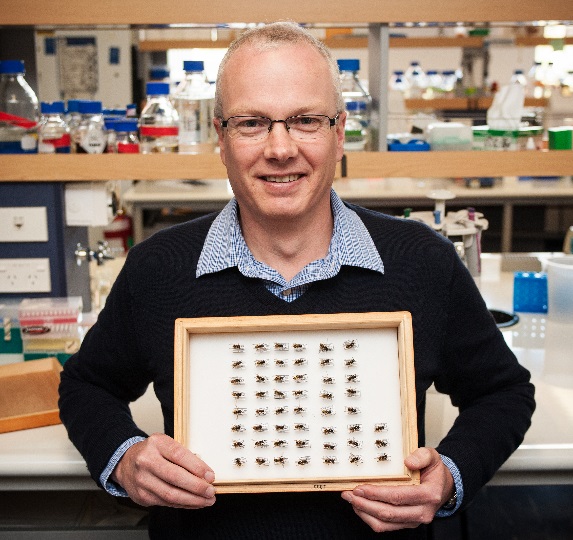Bringing back honey bees using beneficial bacteria
Professor Phil Lester, from Victoria's School of Biological Sciences, has been awarded a highly-sought after James Cook Research Fellowship to research ways of reducing the impact of parasites and pathogens that a central cause of declining bee populations in North America, Europe and New Zealand.
Professor Phil Lester, from Victoria's School of Biological Sciences, has been awarded a highly-sought after James Cook Research Fellowship to research ways of reducing the impact of parasites and pathogens that a central cause of declining bee populations in North America, Europe and New Zealand.
Humans are hugely dependent on honey bees (Apis mellifera), which pollinate more than a third of our food.

Globally, however, honey bee populations are under threat. In North America and Europe "colony collapse" disorder is widespread and has devastated bee populations. In New Zealand feral populations of bees have all but disappeared. Central to these collapses are parasites and pathogens including the mite Varroa and its associated viruses.
Phil’s project describes a novel approach that will attempt to stop the effects of this parasitic mite by attacking the viruses it spreads. The principal virus target is the "Deformed wing virus" that appears to be the mutualistic partner-in-crime with Varroa mites.
Phil will work with a team of collaborators including Professor Ary Hoffmann from the University of Melbourne, and Prof Graham Le Gros from the Malaghan Institute of Medical Research. Together they will attempt to infect honey bee eggs with a species of bacteria that provides resistance against viruses.
Much like using probiotics, this is a natural approach to disease management in bee populations. Phil says “We know that some bacteria provide resistance to viruses. It’s just a matter of finding the right virus to obtain maximal protection”. Once a queen bee is infected they bacteria will be transmitted to the worker and drone bees the queen produces.
By using this approach the team believe that they have a good chance a good chance to inhibit the effects of the effects of the mite, drastically increase the global health of bees, and decrease the use of pesticides for mite control. And to bring back our feral bees.
For more information, please contact Prof Phil Lester at Phil.Lester@vuw.ac.nz
